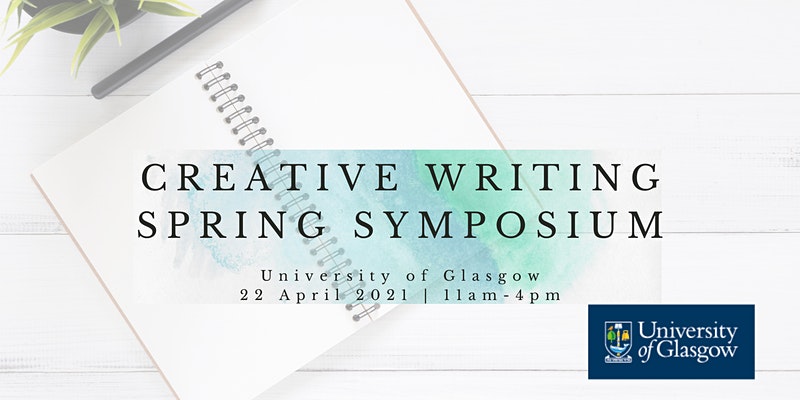
Last week I had the pleasure of giving a short talk on poetics and spatial design at the Symposium on Creative Practices and Writing at the University of Glasgow. My own presentation focused on preliminary doctoral research on poetic practices that I have been undertaking with students at the Strasbourg National School of Architecture, and I was grateful to have a positive reaction from audience members. I’ll speak more about that work another time, but today I wanted to share one major takeaway I received from the symposium, which maybe shouldn’t be earth-shattering, but which I find very encouraging. Creative Writing Practice is an expansive and meaningful field of action.
Literary writing is still a central activity in what we do, but today’s community of creative writers are breaking through old boundaries of what creative writing is, what creative writing means, and giving new reasons to why creative writing matters. Gone are the days in which we, within the field at least, are expected to satisfy ourselves with the notion of an ideal act of writing, secluded at our desks, expressing universal truths or profound experiences. I can’t deny that there are still writers seeking truth and beauty, but there is also so much more.
Take just a brief and incomplete sample from some of the presentations I observed at the symposium last week. Creative Practices in Writing include:
- Community building for underrepresented groups (Malika’s Poetry Kitchen!)
- Ecology and the struggle for ecological justice
- Empowering the oppressed (one example: creating an anthology of Rohingya poets)
- Human geography and the mapping of mental health and/or chronic illness
- Performance of all sorts
- Podcasting (in this particular case, about Cornish cemeteries and the people buried there!)
- Video game design
- Writing with/within the sciences (via a writer’s residency at the European Space Agency)
As I said, this is an incomplete sample, and there were many other interesting examples just from the symposium itself. If we look at the broader field, I am reassured to see that Creative Writing is evolving to a more complex and engaged discipline than when it arose in the first half of the 20th century in the United States. Is this just about expanding our notions of creative writing jobs, making our MFAs and DFAs more marketable, more employable? Not for me. Beyond job prospects for writers, I believe this is about how creative writing addresses the world.
In a sense, this connects to thinking I have been doing on the difference – for me – between poetic practice and poetry itself, or, better yet, between the practice and the poem. Reducing our concern down to the poem as an art object strikes me as an important historical shift within certain early-20th century modernisms, roughly parallel to similar shifts in other arts, but one that is of limited use today. What happens in practice, however, even if we’re engaged in poetic or poietic processes, appears ultimately more relevant for a society in which poets and other writers are expected to be fully contributing members, working in relation to (and maybe even in service to) any number of aspects of our always already more complex lives together. The poem may be a kind of ends to the poietic process of writing, and it may bring with it meanings of all sorts, but the dynamics of practice (and their entanglements) seem to put more at stake.
To that end, I am truly pleased that the Creative Writing department at the University of Glasgow, where I am enrolled for my DFA (Doctor of Fine Arts), is applying to become the Centre for Writing and Creative Practice. While the mission and functioning of the Centre is still under preparation, its name alone speaks to the breadth of what is possible in Creative Writing, especially when approaching it from a practice-based perspective. I have no fear that we might totally kill off the lonely writers in their garrets, toiling away at the next great literary masterpieces of a generation. But I am excited to take the focus off them, at least for a while, while we build new possibilities for creative writing practice in/of/for/through the communities in which we live.
Pingback: “Approaching Research Practice in Architecture” - Spatial Poetics
Pingback: SFC Saltire Emerging Researcher Scheme - Spatial Poetics